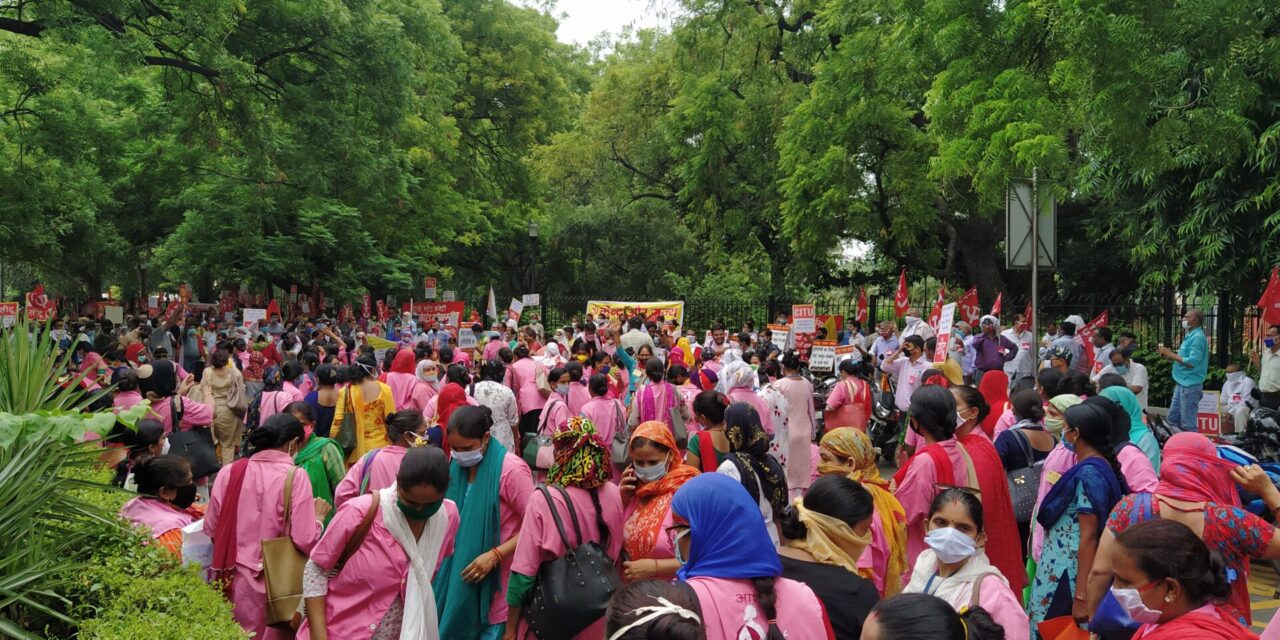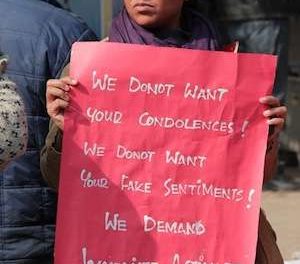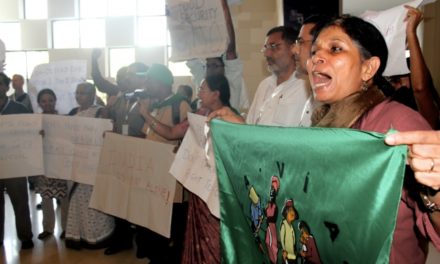Before the COVID pandemic struck India, its Ministry of Health, stated that the country had more than a million strong army of women Accredited Social Health Activists (ASHA). The ASHAs are foot soldiers of the public health machinery in the country, under the umbrella of the National Health Mission, especially in the rural hinterlands where health infrastructure is far from adequate.
As India continues to grapple with COVID, these health workers have been pushed to the frontline of the government’s half-hearted strategy of ‘trace, test, isolate’ and creating community awareness about the virus, without adequate training and health safeguards.
In normal times the ASHA workers are responsible for delivering a plethora of doorstep services centering on creating awareness about community health practices, nutrition, hygiene and sanitation. They counsel young girls and mothers about reproductive and sexual health, prenatal care and are link to the primary and sub-primary health centers. They take up immunization drives in the community and are the primary implementation point for the government’s crucial Integrated Child Development Scheme (ICDS), which concerns diet and nutritional substitution, preschool education and primary health for the all children up to six years and their mothers. They are also trained to prescribe curative care for minor ailments among the community. These ASHA workers are responsible for keeping records of births, deaths and a close eye on the spread of any communicable diseases in their designated villages/urban wards. Overall, the ASHA workers, who mostly come from poor and marginalized backgrounds, are the doorkeepers of the community’s public health. With a considerably high population of malnourished and stunted children to be reached out, the role of these frontline workers is critical.
However, ASHAs are poorly paid and are not even recognized as workers by the state apparatus. They are considered as community ‘volunteers’, hence denied social security nets that come with a government employment. The struggles by the ASHAs for fair wages is not new, although the COVID situation has brought them to the brink.
ASHA workers are paid an honorarium which comprises of a fixed and an incentive component. The fixed component of the monthly honorarium ranges from INR 2,000-10,000 ($27-133) varying across states. The incentives are paid according to the category of services delivered. These incentivized payments range from INR 1 for every Oral Rehydration Solution (ORS) packet distributed among children to INR 300 for facilitating an institutional delivery. Further there is a lag in receiving these payments. Over the years the domain of health and other community services provided by ASHAs have expanded vastly, although there has been no commensurable increase in their incomes.
The work of these women has grown exponentially during the present health crisis, which comes in addition with increased housework in the period of lockdown. Tragically several ASHAs have also succumbed to COVID and other work related ailments while on duty.
Since the pandemic, the central government has announced an insignificant additional monthly incentive of INR 1,000 (INR 33 per day) for the ASHAs. However, various surveys have found that even this small sum is not reaching them. This situation is increasingly pushing these women health workers into a debt crisis. It has to be noted in most cases the ASHAs have become the sole earning members in their families, as unemployment rates spiral out of control.
The demands of Trade Unions representing the ASHA workers include; free ration, INR 7,500 per month for next six months, testing facilities, access to PPE, coverage of all family members under health insurance and treatment costs, incentive of INR 25,000 a month for ASHAs on COVID-19 duty and a payment of INR 500,000 for ASHAs infected by the virus while on duty. Their wider demands also include recognition of ASHAs as regularized government employees with a minimum monthly salary of INR 21,000 and a pension of INR 10,000 per month, besides coverage under all existing insurance schemes. But these demands have been largely unheard by the central and the state governments. So far, the central government announced a INR 5 million life insurance cover for ASHAs who die of COVID while on duty, but reports indicate that their families have found it hard to avail the amount
The latest joint action by the 10 Central Trade Unions (CTU) was a two-day, countrywide strike of the ASHA workers on August 7 and 8. Around 600,000 ASHA workers are reported to have joined the strike and subsequently demonstrated in various parts of the country on August 9.
So far there has been no response from the government. Despite this, the ASHA workers and trade unions have decided to intensify their struggles in the coming days. These real ‘corona warriors’ will continue their twin battles; to stop the spread of the virus and for better work conditions and decent wages.
Ranjini Basu is Policy Officer with Focus on the Global South and based in New Delhi, India.









